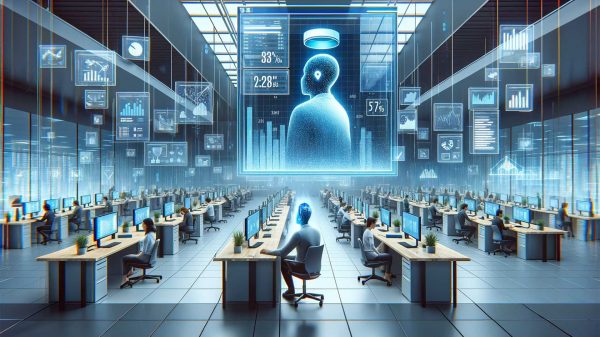Balancing Efficiency with Humanity: Navigating the Dehumanization Risks in an AI-Driven Business World

Introduction: The Quest for Digital Perfection and Its Human Cost
In the relentless pursuit of digital excellence, businesses are prioritizing efficiency and data insights, potentially at the expense of the human element. While driving innovation, this pursuit can lead to the neglect of core human needs for connection and empathy, resulting in detrimental effects on organizational health and societal well-being.
The Workplace: When Employees Become Data Points
The introduction of AI in the workplace has raised concerns about creating an environment where employees are viewed merely as productivity metrics. The Trades Union Congress warns that unregulated AI could result in work environments that are discriminatory and dehumanizing, treating employees as components of an AI-managed process rather than as valued human resources.

Customer Relations: The Risk of Losing the Human Touch
The transition to AI-driven customer service and interaction comes with the risk of viewing customers as data points, not people. This can lead to a depersonalization of the customer experience, where AI’s decision-making capabilities overshadow the emotional intelligence that human interactions provide, potentially diminishing trust in the brand.
B2B Interactions: The Cost of Efficiency
In B2B interactions, the emphasis on automation and efficiency can lead to a decrease in human-led coordination and problem-solving, threatening the strength and durability of these business relationships.

Societal Impacts: The Devaluation of Human Qualities
The societal implications of AI-driven dehumanization are profound, as seen in the potential for reduced diversity, worker displacement, and the undermining of public institutions. Forbes brings attention to AI’s broader societal dangers, including the risk of job displacement and the invasion of privacy.
Generative AI in the Workplace: Amplifying the Dehumanization Risk
The introduction of generative AI in workplaces can exacerbate dehumanization, with HR professionals expressing concerns over recruitment algorithms making the hiring process less human-centric and more transactional.

Mitigating Risks: A Human-Centric, Ethical Approach to AI
Businesses can take proactive measures to mitigate the risks associated with AI, including implementing AI governance frameworks and upskilling programs. Deloitte Insights emphasizes the importance of not underestimating the potential negative impacts of AI on employees and the ethical dimensions of its use.
Conclusion: Enhancing Human Progress with AI
In the age of AI, the challenge is to leverage the technology to enhance human capabilities, not to overshadow them. The correct application of AI in business should strive to augment the human experience, ensuring that the path of progress remains firmly rooted in humanity.
Let's Chat!
Tell me how I can help you?
Got questions or ideas? Want a free consult? I’m just a click away. Reach out and let’s kickstart your success journey!
